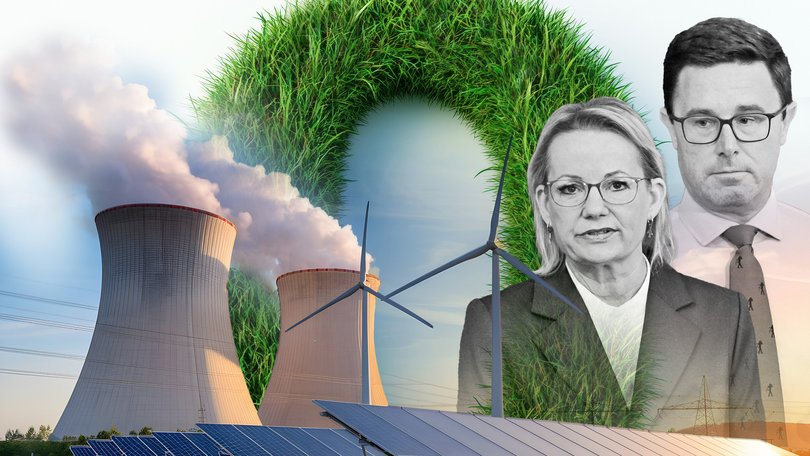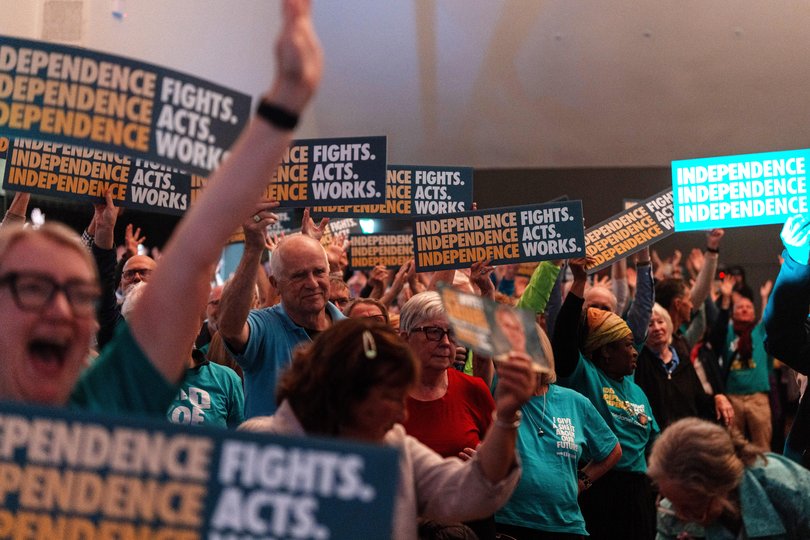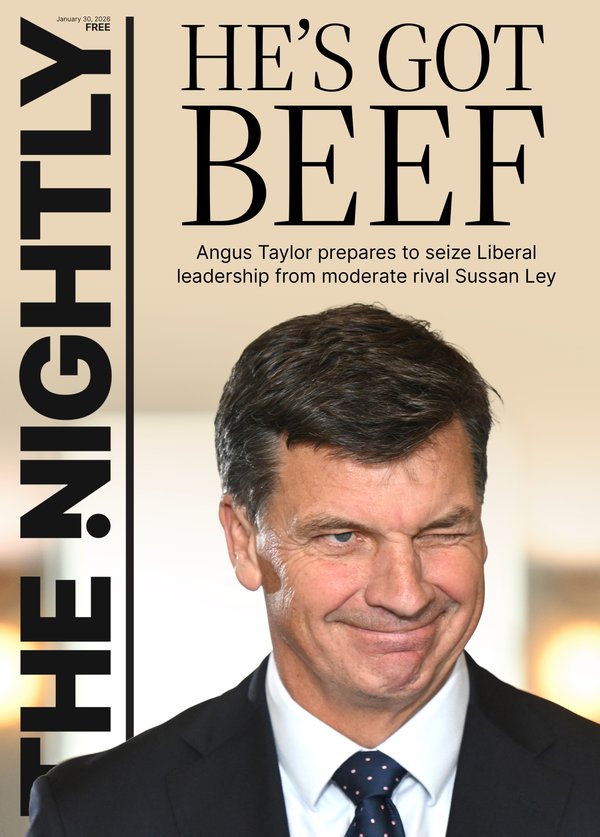ELLEN RANSLEY: Liberal insiders warn Sussan Ley it’s unwise to waver on net zero policy
ELLEN RANSLEY: Putting net zero up for review is a gamble that might come back to haunt the reunited, but still fractured, Coalition.

Putting net zero up for review is a gamble that might come back to haunt the reunited, but still fractured, Coalition. In doing so, they risk further alienating crucial inner-city voters and reducing near term prospects of returning to the government benches.
After a historic electoral defeat, Sussan Ley wants to put all policies under the microscope, as part of her plan to bring her Liberal Party back to the “sensible centre”.
Most Australians who inhabit the sensible centre are concerned about climate change and want their government to do something about it.
Sign up to The Nightly's newsletters.
Get the first look at the digital newspaper, curated daily stories and breaking headlines delivered to your inbox.
By continuing you agree to our Terms and Privacy Policy.There’s room for pragmatism, there’s space for debate about what the path to net zero looks like, but if the Liberal Party wants to get its foot back in Sydney, Melbourne or Brisbane - where much of that centre lives - that becomes harder if they aren’t seen to be taking climate change seriously.
Ms Ley hasn’t said she’ll walk away from the policy, but she wants to “get it right”. She’s rejected suggestions that makes the Coalition as a bunch of climate change deniers.
“Australians know, and that includes our team, that we must reduce emissions, but we must have a stable, reliable energy grid and that’s the perspective that I will bring to the policy development, in this space,” she said on Thursday morning.
Ms Ley has an unenviable task of trying to get the Coalition back to a winnable position. But moderate Liberal insiders say it’s unwise to waver on net zero.
Apathy to climate change remains a key reason why the Party has bled so many votes, and lost so many inner-city seats, to teal independents.

But it’s not just city voters concerned about climate change. Australians who live in rural and regional electorates are at the coalface of the more frequent and more extreme floods, fires and droughts.
The joint party room has never claimed to have a homogeneous view of climate policy - to pretend otherwise would be fanciful.
When the Nationals made the commitment to Scott Morrison in 2021, the party room was divided.
Those opposed at the time, like then-leader Barnaby Joyce and Matt Canavan, made their position known. The party’s support was ultimately secured in exchange for a regional economic package and other concessions. It’s never fully quietened the discontent.
As the renewables roll out has ramped up under the Labor Government, the Nationals say their constituents are the one suffering the most. They argue the poles and wires have caused havoc, the energy transition has decimated towns, and residents have suffered socially, economically, and environmentally.
The divisions within the party have never faded, and what has always bubbled away at the surface has erupted into a full boil in the wake of the Coalition’s catastrophic election loss.
The ensuing messy split gave agitators, such as Senators Canavan and Mr Joyce, more space to talk about their aversion to the policy.
Nationals’ senate leader Bridget McKenzie says her party room “wants to have” an informed discussion about net zero.
“The room’s got a diverse range of views, and I’m going to respect it. We’re going to take it seriously, and we’ll let you know what our response is in due course,” she said on Thursday.
Deputy leader Kevin Hogan says his party hasn’t had a “serious discussion about this for four or five years”.
“We’re going to do a study into it, the economic ramifications, new technologies, what we maybe can look at that we haven’t looked at solutions before,” he said, later saying there would be no timeline on that review.
It’s not just the Nationals divided on the policy, conservative Liberals too are speaking out. Andrew Hastie, now shadow home affairs minister, this week described net zero as a “straight jacket”.
Sources close to Ms Ley cautioned against reading too much into making Dan Tehan shadow minister for energy and “emissions reduction”, rather than “climate change” as Ted O’Brien held last term. Still, the portfolio name change has raised some eyebrows.
With the Coalition now reunited, both the Nationals and the Liberal Party will now have the chance to independently look inwards, hear the views of party room members before they make any policy decisions.
Following an election where they were resoundingly defeated, it’s a sensible approach. The risk they take in not agreeing straight off the bat to net zero is further alienating the millions of metropolitan Australians they need to win back if the Coalition ever wants to return to Government.
Of the 88 metropolitan electorates across the country, the Coalition now holds just eight.
As Zoe McKenzie, the moderate Liberal MP for Flinders who held off a tight teal challenge, said on Thursday: net zero and the environment is important for people living in rural electorates like hers.
“But more importantly it’s very important in the minds of the people in Australia’s metropolitan seats, there are 88 of them and my side of politics only now holds eight,” she said.
“So we must be very focused on the aspirations and perspectives of metropolitan Australia in rebuilding our policy platform towards 2028.”
She said she was “personally optimistic” net zero would remain Coalition policy.
If sensibility is to prevail, it will.
But nevertheless, the deep divisions that the messy Coalition split has exposed remain there for all to see. If net zero does wind up remaining Coalition policy after a review process, those internal fissures could dog the parties for at least the next three years.
The unity Peter Dutton wanted his leadership legacy to be has already been decimated.
Jason Falinski, the former Mackellar MP who lost his seat in the 2022 teal wave, implored his Party to stop waging a culture war and seize the political opportunity.
“Tony Abbott said: ‘When climate change is a moral issue we do quite badly. When it’s an economic issue, we do very well’. We need to stop having a debate about whether climate change exists, and start forcing the Labor Party to front up and explain why electricity costs have gone up by 40 per cent while emissions have also gone up (under their renewables transition),” Mr Falinksi said.
“These are compelling facts.”

